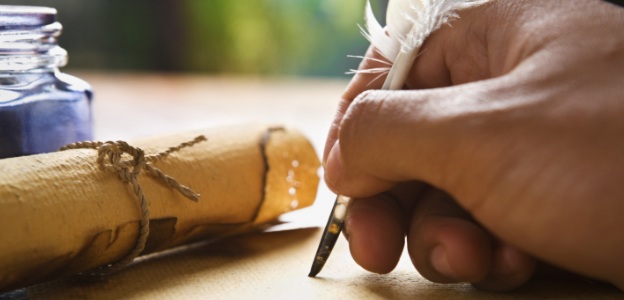When I love the people I know, I feel like I need to know history.
Contacts
submit
Golovna History is one of the most ancient sciences of mankind, the subject of which is the interpretation of facts and the past, their cause-and-hereditary connections.
The origin of history is based on Ancient Greece.
Its father – the founder of the famous Greek historian and philosopher Herodotus (5th century BC).
Is it possible to tell history? What does learning history provide? The food, as it was, was set by itself, melodiously, by the skin of the people.
First of all, we want our students to experience the concepts, and then determine the historical accuracy that is based on these concepts.
At this point, our scientists begin to question the reliability of the statement.
However, this critical approach goes all the way to the core.
At this point, our scientists begin to question the reliability of the statement.
For example, instead of simply reviewing historical data, we also look at how they were actually created, and think about who is valued by the information, then we also consider Formational value of dzherel: we criticize dzherel. What is history? Before history, the trace is placed not only as a scientific discipline, but also as a boring way of knowing the past.
Here the skin will find something useful for itself, as well as history - not only the chronicle of bloody wars and revolutions, but also the highlights of the middle-class competitions, the masculine balls of the Victorian era, important and roads for skins new Russian heart of the traditions of the Slovenian peoples. History students learn intellectual independence and can no longer be easily carried away by “objective” data or strong ideas. History students start writing
courses robots
and give presentations in such a manner as would make sense to others.
History students can learn to read ancient texts and understand the context of the 18th century English and 19th century.
and give presentations in such a manner as would make sense to others.
In short, a step in history can be made by untreated doors.
Despite such a wide range of knowledge and beginners, history graduates are by no means limited to history.
Of course, many of our graduates are training to become teachers, while many others continue to work in areas related to history, for example.
working in museums and ensuring political preparation.
Dekhto virіshiv pratsyuvati in academic stakes.
It is important to know and remember how the sovereignty of one’s land was born, what the path of the people was in order to become a full-fledged spouse, how the culture of humanity developed - the sacred obligation of people and giants.
As soon as we begin to learn history, people cannot comprehend this long and complex process, and most often it affects all life.
History is the light of the hour, the light of truth, the life of memory, the reader of life, the spring of the elders.
Marcus Tullius Cicero
Staring at history, mute at the mirror, I try to change my life better.
Plutarch
A sob story is rarely entirely true.
Samuel Johnson
The identity of the skin depends on the cultural context in which it grows.
Understanding the context, when formed, means understanding yourself.
Well, this context is the result of a historical path that has emerged and inheritances that are intertwined one after another.
It is only by considering history that you understand the context, and by considering the context that you realize your specialness.
At all levels, and especially politically, the use of history is a fundamental resource.
Not only what it brings to the understanding of today, but what it gives evidence for the question: “What kind of inheritance will I give to this other person?”
Everything you think you can earn to help you in the future has already been tried by the singing sense over ten thousand years of human history.
It is important to know what the history of the skin is from the current quotes and what the cob version is.
"Houston, we have a problem."
Commander Jim Lovell.
Most people don’t know who these words are, but they stink, obviously, they smelled them.
Kozhen connects them from NASA and explores space.
Those who know will probably have mercy on the fact that they recognized them as Apollo 13. And the testimony of Tom Hanks, who plays the main character, Jim Lovel.
In fact, the words go to my colleague John Swagger.
The stinks are also getting a little love - the correct quote is “Houston, we have a problem.”
"Penny is the root of all evil."
- Bible.
There are a lot of problems with this quote.
First of all, this is really propaganda against the royal homeland, as is attributed to Jean-Jacques Rousseau, who mentions this in his autobiography “The Confession.”
Moreover, it is wrong to talk about the “great princess”, and not about Marie Antoinette, who is not yet a queen.
If we want to be more precise, the words in the book are cupcakes, but they obviously don’t sound so good.
"And you, Brutus?"

- Julius Caesar. A standard copy at the time of the day, which is shocking. However, you shouldn’t be surprised that the rest of Caesar’s words are not known to us.
The stench is more popular than Shakespeare and his dog Julius Caesar. 
If the Roman historian Shotonius wrote about this story over 150 years ago, he would recognize the Greek phrase that translates as “And you, child?”
Some current historians confirm that when Caesar said something like this, he was more than willing to threaten or curse, rather than wonder.
For example, there is a Greek phrase that sounds like this: “You, my son, feel the taste of power.”
The wheel of history is turned by fools and fools.
I'm not talking about the importance of folk songs.









